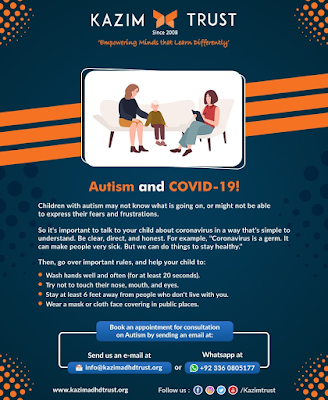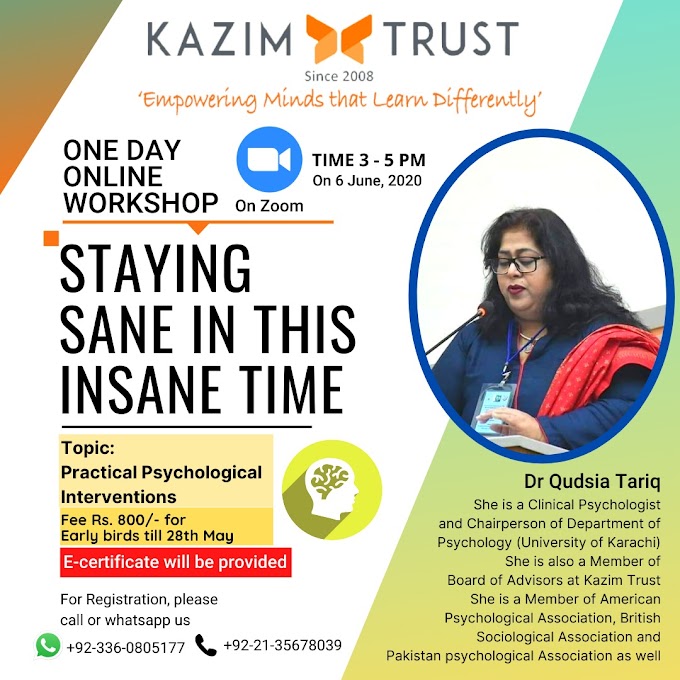Understanding the dangers of this disease might not be difficult for us but it is for the children with autism. They may show strong resistance to change. Due to schools being closed, children are facing even more issue communicating with others. They are losing the confidence that is most needed during this outbreak.
Autism spectrum disorder (ASD) is a broad term used to describe a group of neurodevelopment disorders. This is a disorder characterized by problems with communication and social interaction. Regardless of race, culture, or financial status, ASD is found in children and adults in the world.
Kazim Trust is dedicated to creating awareness about children with ADHD and learning difficulties in Pakistan and to help educators and parents improve the lives of these children.
We surveyed the internet and dug out some life saving answers to the questions that were being asked by the people who were suffering from how to educate children with autism about covid-19 and here’s what we found:
Where should I begin with?
It’s way more than important to educate your child about corona virus. Make sure to be clear and direct. Tell them that there’s a germ that is on the loose and it’s making people sick. We have to stay healthy to keep the germ out of our house.
Then start by educating them with healthy habits:
Cleaning Habit:
You can help a child or an adult person with autism by personally showing them how to wash their hands for 20 seconds. Plus, it would be better if you accompany your activity with words. You can also record a video of you washing and sanitizing your hands. This technique is called live modeling.
Safety Measure:
People with autism sometimes need ad extra support to understand. Tell them to keep 6 feet way from strangers. Wear a mask if you are in school or outside and don’t take it off or the germ will get to you. Few of the learning techniques will really help the person.
Answer Honestly:
Hearing about a deadly disease for the first time might disturb the person with autism. For example, a child might ask you about the disease relentlessly during the day or even during the meal. All you have to do is to answer them in a polite and honest manner. Teach them ways to form a better hygiene as if they were in a school.
Apart from this, keep the person with autism away from upsetting and bad news regarding the virus. Keep them motivated all the time and hopefully they’ll eventually learn how to fight the virus.
If you need further support, we are just a call away. Feel free to contact us by visiting our website at https://www.kazimadhdtrust.org/




0 Comments